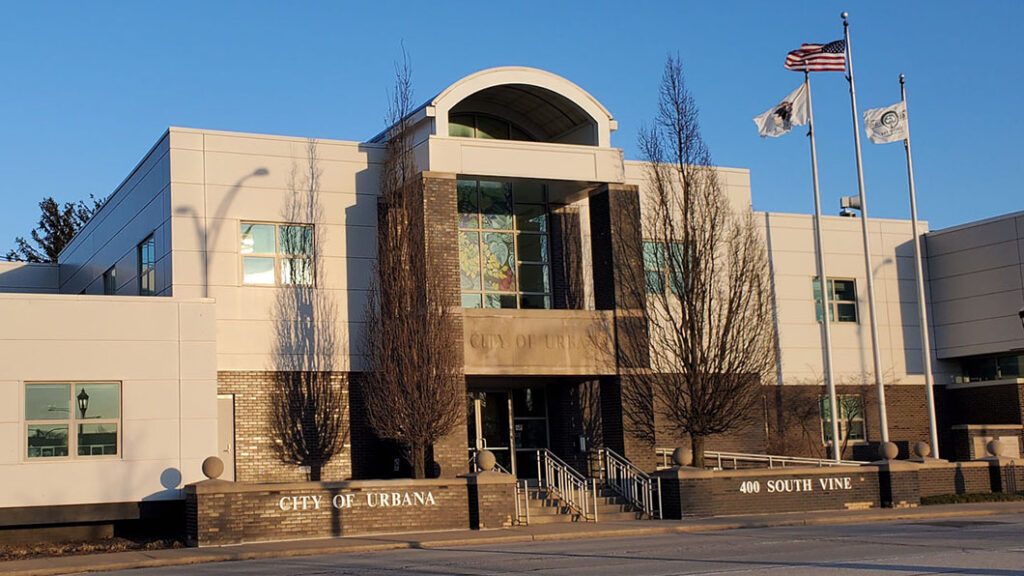
Urbana, Illinois City Officials appear to be more concerned with finding ways to deny and delay public records requests than they are with providing the actual records. The City routinely takes months to respond to Freedom of Information Act (FOIA) requests from Check CU, and the heavily-delayed responses often deploy unlawful exemptions.
In a FOIA request sent to the City on March 15th, 2022 Check CU asked for ”Any and all records related to the 2018 arrests of Quintin Brown and Wayne Colson, and the resulting criminal cases 2018CF000107 and 2018CF000108.”
Though state law requires a public body to respond to requests within five business days, nearly a month has passed and Urbana has not supplied any records.
Colson and Brown were arrested and imprisoned by Urbana Police for an alleged robbery and shooting in January 2018. A year later, they were both released after the State’s Attorney Julia Rietz said there was no case for prosecution because there existed no physical evidence linking the men to the incident.
Check CU recently published an article about the Colson & Brown arrest, and the lawsuits they each filed against the City of Urbana:
Instead of supplying the records, Urbana FOIA Officer Ross McNeil declared that Check CU was a “recurrent requester”, and that he was planning to significantly delay his response. McNeil has used this tactic on nearly every FOIA request sent by Check CU in the past eighteen months.
FOIA does have a special provision which permits a public body the ability to declare someone a “recurrent requester”, but it is illegal to apply that standard to news media and non-profits. Check CU Founder Christopher Hansen made clear in his request (and every prior FOIA request back to October 2020) that he was a writer for CheckCU.org, and that the records would be used to write articles and provide information to the public.
From Illinois statute (5 ILCS 140/2)(g):
“Recurrent requester”, as used in Section 3.2 of this Act, means a person that, in the 12 months immediately preceding the request, has submitted to the same public body (i) a minimum of 50 requests for records, (ii) a minimum of 15 requests for records within a 30-day period, or (iii) a minimum of 7 requests for records within a 7-day period. For purposes of this definition, requests made by news media and non-profit, scientific, or academic organizations shall not be considered in calculating the number of requests made in the time periods in this definition when the principal purpose of the requests is (i) to access and disseminate information concerning news and current or passing events, (ii) for articles of opinion or features of interest to the public, or (iii) for the purpose of academic, scientific, or public research or education.
FOIA Officer McNeil, and his predecessor Curt Borman, have repeatedly ignored state law in favor of delaying the City’s responses. In every instance wherein McNeil and Borman have issued a “recurrent requester” notice, Hansen responded with additional information about his news media credentials, and asked if the City needed any further information.
However, McNeil and Borman have never once replied. In the past eighteen months, both FOIA Officers have ignored dozens of communications from Check CU about their unlawful FOIA delays and denials. The City of Urbana often takes months to supply public records that should be supplied within five business days. In a number of instances, McNeil and Borman have also charged illegal FOIA fees.
Check CU’s FOIA request for the Colson & Brown records, along with the Urbana’s “recurrent requester” designation is provided at the end of this article. As with every prior instance, McNeil never responded to Hansen’s attempts to communicate his news media credentials.
In addition to ignoring the news media exception, McNeil also falsely claimed that Hansen had submitted thirteen FOIA requests between February 23rd and March 1st, when only four FOIA requests had actually been submitted in that time period.
Check CU has already discovered other instances of Urbana City Officials falsely over-counting FOIA requests in attempts to unlawfully delay and deny records, and to apply unlawful fees (described in this article: How Urbana Officials Abused One FOIA Requester for a Year).
 Loading…
Loading…
